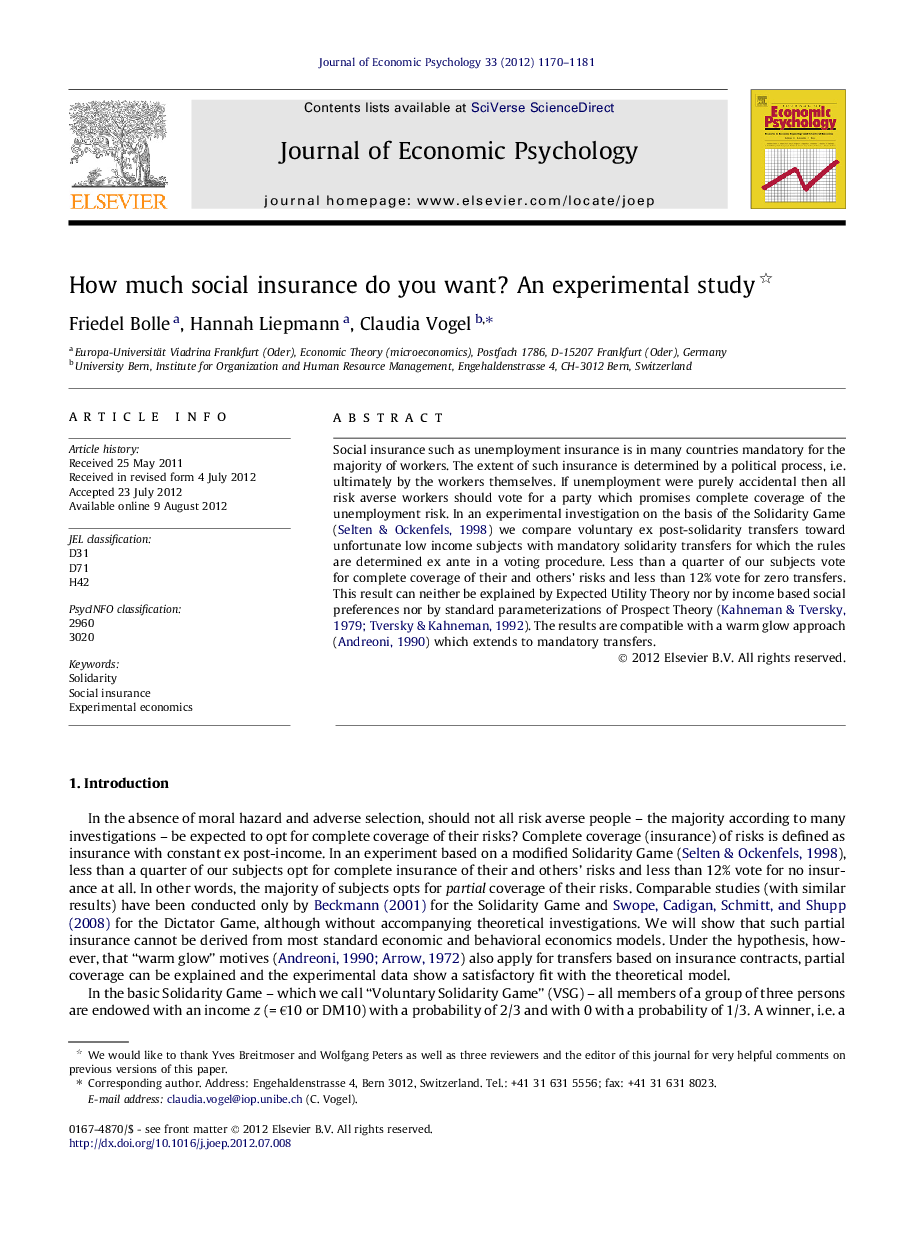| Article ID | Journal | Published Year | Pages | File Type |
|---|---|---|---|---|
| 884990 | Journal of Economic Psychology | 2012 | 12 Pages |
Social insurance such as unemployment insurance is in many countries mandatory for the majority of workers. The extent of such insurance is determined by a political process, i.e. ultimately by the workers themselves. If unemployment were purely accidental then all risk averse workers should vote for a party which promises complete coverage of the unemployment risk. In an experimental investigation on the basis of the Solidarity Game (Selten & Ockenfels, 1998) we compare voluntary ex post-solidarity transfers toward unfortunate low income subjects with mandatory solidarity transfers for which the rules are determined ex ante in a voting procedure. Less than a quarter of our subjects vote for complete coverage of their and others’ risks and less than 12% vote for zero transfers. This result can neither be explained by Expected Utility Theory nor by income based social preferences nor by standard parameterizations of Prospect Theory (Kahneman and Tversky, 1979 and Tversky and Kahneman, 1992). The results are compatible with a warm glow approach (Andreoni, 1990) which extends to mandatory transfers.
► We compare voluntary ex post-solidarity transfers and mandatory solidarity transfers. ► Rules of mandatory transfers are determined by an ex ante voting procedure. ► Transfers under ex ante voting are significantly higher than voluntary transfers. ► The majority of subjects opts for partial coverage of their risk. ► Less than a quarter of the subjects vote for complete coverage of risk.
